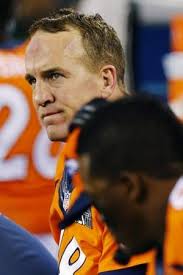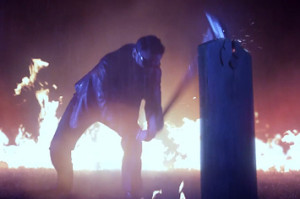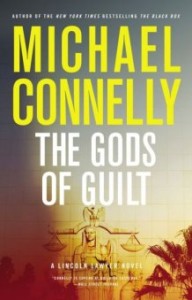The Super Bowl, Jamie Casino and the Rights and Wrongs of White-Collar Defense
Reading Time: 6 minutes.

As a football game, the Super Bowl was dreadful, at least in terms of entertainment value. As a cultural petri dish, its television advertisements (and the reactions to the advertisements) were invaluable. And the most mind-blowing bacillus in the dish, by consensus, had to be the commercial by Savannah plaintiffs’ lawyer Jamie Casino. In the midst of the spot’s pageantry, if that is the word, most seemed to have missed a significant issue that Mr. Casino, inadvertently, raises for businesses and those white-collar or compliance lawyers who help them.

First, let’s take Mr. Casino at his word: he is a plaintiffs’ personal-injury lawyer with a predeliction for over-the-top advertisements, the kind on ones on local daytime television.

Second, he tells a story in his Super Bowl ad. What’s the story? He was, he says, a “notorious criminal defense attorney.” This work apparently brought him wads of cash and continued until his brother was killed (by notorious criminals). He then decides to devote himself to helping the innocent and injured, rather than protecting the guilty and the criminal.
And there are some great scenes where he smashes his brother’s gravestone and then drags the sledgehammer (emblazoned with his brother’s name) along the ground, the furrow made then bursting into flame. And, all to the tune of an old AC/DC song performed by Godsmack (according to the Esquire article).
One would applaud Mr. Casino for his creativity and then consign his video to the digital netherworld, but for the Manichaean dichotomies he sets up for us about “innocence” and “guilt.”
These issues are often fodder for lawyers’ family dinner-discussions; law school exams on ethics; and thrillers featuring lawyers (for example, Michael Connelly’s “Lincoln Lawyer,” L.A. criminal defense attorney Mickey Haller).

Haller is constantly conflicted about his role as a lawyer who defends unsavory people, as we see here in the Gods of Guilt trailer.
At the cocktail party or the dinner table, the question usually takes the form of “How can you defend someone who’s guilty?”
(“Because they pay” is not a suitable answer).
Strikingly, the question is often posed by corporate executives, officers, directors or employees who understandably see the world as one in which there are “good” non-criminal persons (including themselves, their loved ones, their golfing and hunting friends) and there are “bad” criminal persons (a group that excludes themselves, their loved ones and at least most of their golfing and hunting friends). The situation is striking because those corporate exemplars are the very people whom men and women who can pull on the levers of power — Mr. Casino and his colleagues at the plaintiffs’ bar, for example, as well as Assistant United States Attorneys, FBI agents and federal regulators — will be first to label as “bad”; as criminal; as deeply suspect.
Thus, the dramatic flair of Mr. Casino’s commercial, a flair that disguises the dramatic ease with which one shifts from a mindset of “Everyone I represent is guilty” to “Everyone I represent is innocent.”
Here is why the seamlessness of Mr. Casino’s transition from “notorious” criminal-defense lawyer to “noted” plaintiffs’ personal-injury lawyer is relevant to how we think about white-collar criminal defense; compliance; and business ethics.

Consider two civil personal-injury cases. In the first, we see a claim for a crushed leg arising from an accident involving a forklift. In the second, we have a claim by the neighbors of an industrial facility for miscelleanous illnesses caused, they say, by air pollution from the plant. Call them the “Leg” and “Pollution” cases.

Then, consider two criminal cases. The first involves the operation of a meth lab.

The second involves payment of money to third parties, payments which the prosecution characterizes as illegal “kickbacks” and the corporate defendant characterizes as unlawful “commissions.” Call them the “Lab” and “Payment” cases.

Setting aside differences in the identities of the respective prosecuting parties (private versus sovereign) and differences in the burden of proof (preponderance-of-the-evidence versus beyond-a-reasonable-doubt), which cases are most alike? Which “feel” the same?
Lawyers being lawyers, there are doubtless many idiosyncratic answers, but the consensus answer should be “Leg” and “Lab” are alike, and “Pollution” and “Payment” are alike. In “Leg/Lab,” there will be little or no dispute that an undesirable harm (leg crushed) or prohibited act (meth lab operated) has occurred. The defendant in each case may have factual or legal defenses to liability or guilt, and the jury must weigh the sufficiency of the evidence, but no one in the courtroom will argue that a crushed leg is a not a harm, or that a meth lab is lawful. The leg is destroyed; there is no lawful purpose for a meth lab. An injury occurred; a crime took place.
In “Pollution/Payment,” in contrast, there is a preliminary — and murkier — question to ask: Has a harm or a crime occurred at all? In “Pollution,” the defendant will concede that its operations caused emissions into the air. Before offering, however, legal or factual defenses (the plant operated within its air permit; the statute-of-limitations has run; the plaintiff moved out of the neighborhood fifty years ago, or into it last month, etc.), the defendant will argue that there is no “general causation” — that even if the emissions of the plant are as the plaintiffs say, and even if their illnesses are as the plaintiffs say, those emissions cannot as a matter of medicine and science cause those illnesses. Thus, no harm (or at least, no compensable harm). In “Payment,” the defendant will concede, as the Government alleges, that a check was issued and a payment made, but will argue that there is no evidence of wrongful intent. Thus, no crime.
It is easier for Mr. Casino — and for all of us — to move from the undisputed criminality of street crime to the undisputed harm of a product-liability or workplace-injury case. (See Mr. Casino’s certainty of the guilt of his former clients and the innocence of his current ones. Zealous advocacy is commendable, but individuals, not classes, are eventually determined guilty or innocent). Lawyers, judges, juries, media, spectators — we all enjoy it when things are obvious and sure, a certitude that is as much emotional, even theological, as anything else. In a white-collar case, internal investigation or compliance review, “intent” is the crux. We cannot avoid the irritating question: “Has a crime occurred at all?” In the aftermath of undesirable events, or to gain votes, Congress has a bad habit of criminalizing conduct that theretofore was innocent, commonly-accepted behavior in the American economy. We do the same in our daily lives: How loosely do we use the word “criminal,” even when we should know better? Conduct may be unethical, unseemly, a too-sharp business practice or a violation of our company policy, but those conclusions are more confounding and less satisfying than a criminal conviction. Because white-collar offenses are mostly or wholly intent-based, though, “crime in the suite” really is different than “crime in street.” White-collar crimes can cause great harm and should be prosecuted. Let us be sure, however, that what we see is a crime, rather than unfortunate conduct and unlikable people distorted by the fun-house mirrors of our own indignation, anger and fear.